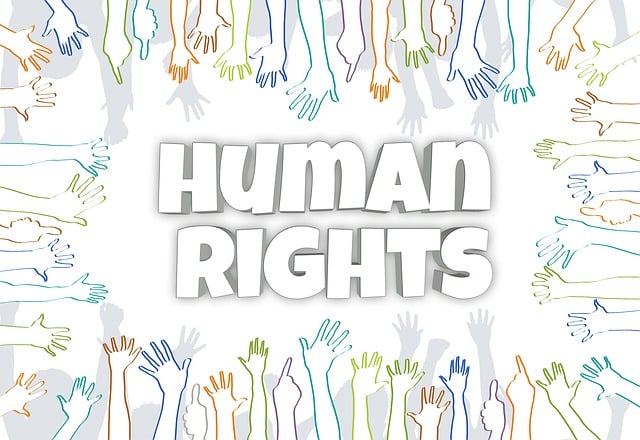When facing a contract breach, businesses must act swiftly and strategically. Initial steps include gathering relevant information, assessing the situation, and consulting legal experts. Preserving evidence, collecting documents, and understanding the business context are crucial for a comprehensive investigation. This process aims to identify witnesses, reconstruct events, and ultimately mitigate risks through strategic actions like internal investigations, remedial measures, and preventative strategies. Following these steps ensures a legally compliant approach, effective dispute resolution, and the protection of organizational interests after a contract breach.
Corporate Crime Investigations delve into complex matters of illegal activities within organizations. This article guides you through vital steps, from Understanding Corporate Crime Investigations: The Initial Steps to Remedial Actions and Future Prevention Strategies. Learn how to identify and document contract breaches, gather evidence with legal considerations, interview witnesses and stakeholders, and implement effective remedial actions to mitigate risks. Discover key strategies to take after a contract breach for proactive prevention.
- Understanding Corporate Crime Investigations: The Initial Steps
- Identifying and Documenting Contract Breaches
- Gathering Evidence: Legal and Practical Considerations
- Interviewing Witnesses and Stakeholders
- Remedial Actions and Future Prevention Strategies
Understanding Corporate Crime Investigations: The Initial Steps

When faced with a corporate crime investigation, understanding the initial steps is crucial. The first phase involves gathering all relevant information and documentation related to the suspected breach or illegal activity. This includes reviewing contracts, financial records, employee communications, and any other evidence that could indicate a violation of corporate policies or legal obligations.
The next step in the process is to assess the situation and determine the best course of action. The company should consider the nature and severity of the alleged breach, as well as its potential impact on stakeholders across the country. Consulting with legal experts specializing in general criminal defense can provide valuable insights into navigating the complexities of all stages of the investigative and enforcement process. The goal is to ensure a thorough investigation that complies with legal requirements, thereby mitigating risks and protecting the organization’s interests.
Identifying and Documenting Contract Breaches

When a contract breach occurs, it’s crucial to take immediate and meticulous steps to gather evidence and document the infraction. The first step is to identify the breach – this involves a thorough review of the contract terms and conditions, comparing them against the actions or inactions of the breaching party. Once identified, it’s vital to collect relevant documents, communications, and records that support the claim of breach. This could include contracts, emails, reports, financial statements, and any other materials that shed light on the violation.
The process of documenting contract breaches is an essential part of a robust white collar defense strategy, as it provides concrete evidence for potential legal proceedings. Furthermore, this detailed record can also aid in resolving disputes amicably through negotiations or alternative dispute resolution methods. Across the country, businesses and philanthropic and political communities rely on fair contractual agreements to foster trust and collaboration; thus, meticulous documentation of contract breaches plays a pivotal role in upholding these relationships.
Gathering Evidence: Legal and Practical Considerations

When conducting investigations into corporate crime, such as contract breaches, gathering evidence is a meticulous process that demands both legal acumen and practical expertise. The first steps to take after discovering a breach involve preserving any existing evidence, including documents, digital records, and witness statements. This initial phase is critical to ensure the integrity of the case, as it sets the foundation for further legal proceedings.
Legal considerations come into play when deciding which evidence to collect and how to obtain it. Investigators must adhere to strict protocols to avoid jeopardizing the validity of the case. For instance, obtaining search warrants or utilizing legal subpoenas can help gather relevant information from respective business entities across the country. Ultimately, the goal is to compile a comprehensive body of evidence that supports the claims of his clients while maintaining ethical and legal standards throughout the process.
Interviewing Witnesses and Stakeholders

After a contract breach is suspected or confirmed, corporate crime investigations often turn to interviewing witnesses and stakeholders as crucial steps to take. The process involves gathering statements from individuals directly involved in or aware of the incident, aiming to reconstruct events, identify potential culprits, and uncover any malicious intent. These interviews are critical for piecing together the puzzle, especially when dealing with complex business agreements.
Effective interviewing requires a systematic approach. It begins with identifying all relevant witnesses and stakeholders—individuals who could provide valuable insights into the breach’s circumstances, causes, or aftermath. Next, investigators should prepare detailed questionnaires, focusing on specific aspects of the contract to ensure comprehensive information collection. The respective business environment, including its culture and practices, may also shed light on why a breach occurred. Ultimately, these steps aim for a complete dismissal of all charges, as they provide a clearer understanding of the situation, potentially mitigating risks of costly jury trials.
Remedial Actions and Future Prevention Strategies

After a contract breach is identified, the first steps to take are crucial for effective remedial actions. Companies should conduct a thorough internal investigation, gathering all relevant evidence and documenting the breach’s causes and impact. This process involves reviewing contracts, communications, financial records, and interviewing personnel involved. Once the root causes are established, specific and tailored remedial measures can be implemented. These may include correcting the breach by performing uncompleted tasks, compensating affected parties for losses incurred, or offering enhanced service to rebuild trust.
Additionally, focusing on preventive strategies is essential to avoid similar incidents in the future. This could involve enhancing internal controls, such as improving contract review processes and implementing stricter approval systems. Training programs can educate employees about their roles and responsibilities regarding contracts, fostering a culture of compliance. For both corporate and individual clients, addressing white-collar and economic crimes requires a proactive approach, including regular security audits, employee background checks, and the establishment of robust reporting mechanisms. By taking these steps, organizations can safeguard against future contract breaches and ensure ethical business conduct for his clients.
Corporate crime investigations demand a meticulous approach, from understanding initial steps to implementing preventative strategies. By identifying and documenting contract breaches, gathering robust evidence through legal and practical considerations, interviewing key witnesses and stakeholders, and taking remedial actions, organizations can effectively navigate these complex scenarios. Remember that each case is unique, requiring tailored solutions. Following the outlined steps after a contract breach will empower businesses to foster integrity, enhance compliance, and ensure sustainable growth in their operations.






